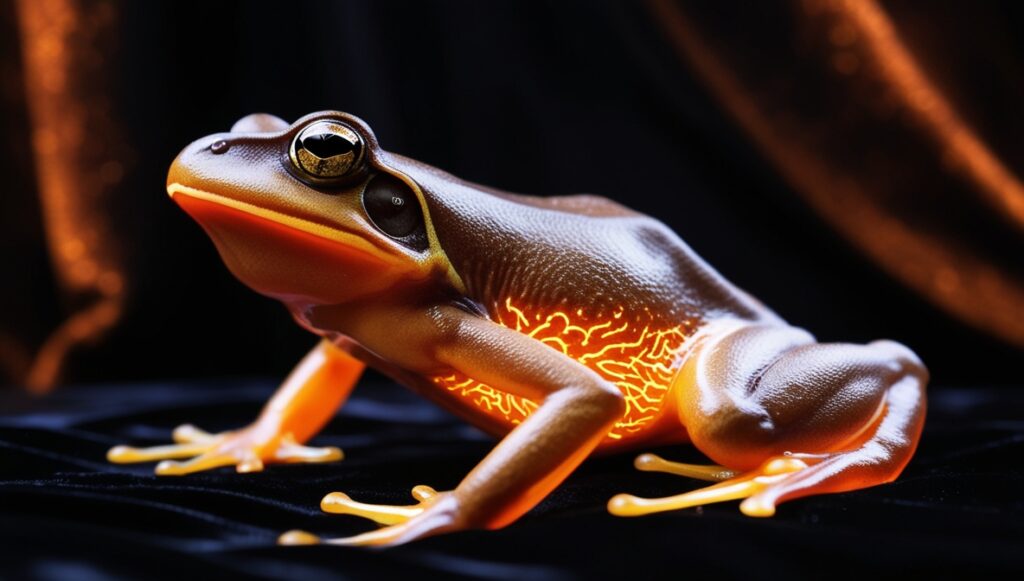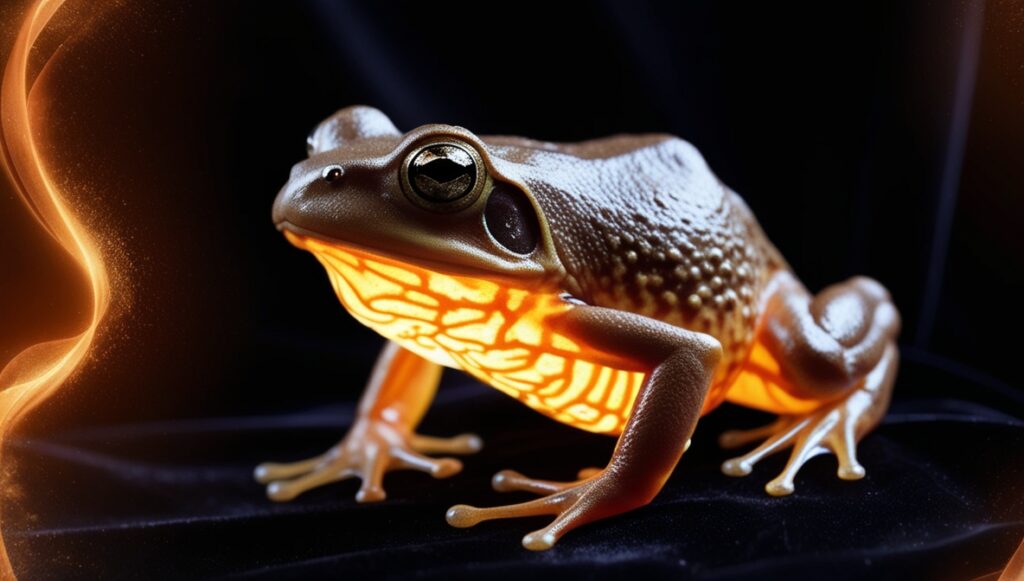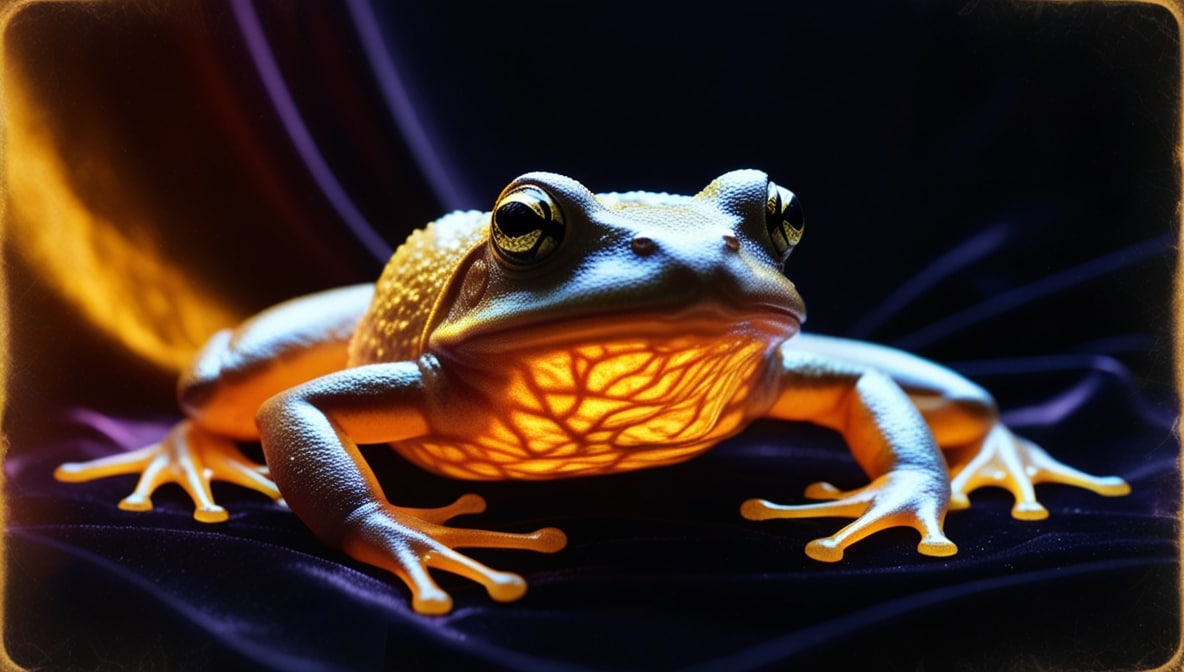Frogs have held significant spiritual meanings across various cultures and traditions. They symbolize transformation, rebirth, and adaptability due to their life cycle stages that evolve from egg to tadpole to adult. However, the dead frog carries a unique spiritual meaning that invites deeper reflection. In this article, we delve into the symbolism and insight provoked by the dead frog, providing a comprehensive understanding of its spiritual significance.
Understanding Frogs in Spiritual Context
Frogs are commonly associated with the element of water and the emotional realms it governs. They symbolize fertility, cleansing, and renewal. To understand the meaning of a dead frog, it’s vital first to take a closer look at the general spiritual symbolism that live frogs embody.
Transformation and Adapting to Change
Frogs undergo metamorphosis, transitioning from water-dwelling tadpoles to land creatures. This transformation signifies personal growth and the ability to adapt to new circumstances, a fundamental lesson in spiritual development.
Connection to Water Elements
Water symbolizes emotions, intuition, and the subconscious. Frogs, being amphibious, bridge the gap between terrestrial and aquatic environments, embodying fluidity in navigating life’s different phases. Their presence in spiritual practices often calls for cleansing and emotional release.
Fertility and Abundance
Many cultures view frogs as harbingers of fertility and prosperity. Their croaks often signify the arrival of rain, which is essential for life and growth. In this context, frogs symbolize new beginnings and the abundance that comes with them.
The Symbolism of a Dead Frog
When considering the dead frog, the symbolism shifts considerably. A dead frog does not merely represent the end of life; it carries messages that speak to transformation, loss, and reflection.
The End of a Cycle
The death of a frog can symbolize the conclusion of a particular phase in life. In nature, death is often followed by renewal; thus, the dead frog may represent an opportunity to reflect on the lessons learned from experiences that have now passed.
- Letting Go: Embracing change and understanding when it’s time to release situations, feelings, or relationships that no longer serve your highest good.
- Completion: An acknowledgment that some life cycles must come to a close, paving the way for new beginnings.
Remembering and Honoring the Past
A dead frog serves as a reminder to honor past experiences and the lessons we’ve learned. In spiritual practices, it prompts us to reflect on our journey—celebrating successes and acknowledging failures.
- Reflection: Consider what the dead frog represents in your own life and how your experiences have shaped your identity.
- Gratitude: Cultivating thankfulness for periods of struggle, growth, and transformation.
The Dual Meaning of Life and Death
In many cultures, death is viewed as a transition rather than an end. The dead frog embodies this duality, reminding us that life and death are intertwined, much like the cyclical patterns seen in nature.
Cultural Perspectives on Dead Frogs

Understanding the significance of dead frogs across various cultures deepens our appreciation of their spiritual meaning.
Indigenous Cultures
In numerous indigenous beliefs, frogs are seen as messengers between the physical and spiritual worlds. A dead frog might symbolize a message from the spirit realm—a reminder to pay attention to the signs, learn from nature, and remain sensitive to spiritual guidance.
Asian Symbols
In Chinese culture, frogs are associated with prosperity and good fortune. A dead frog can signify an end to financial troubles or a warning to be cautious with resources.
- Transitional Wisdom: Emphasizing the need to learn from losses to pave a path toward greater prosperity.
Egyptian Mythology
The Egyptians revered frogs, often associating them with rebirth and fertility. However, a dead frog could foreshadow a disruption in one’s productive cycle or serve as a cautionary emblem to heed rather than ignore spiritual downturns.
The Message of a Dead Frog in Dreams
Dreams involving dead frogs often provoke curiosity and concern. However, they can be interpreted in multiple ways depending on personal experiences and emotional states.
Common Interpretations
- Fear of Change: A dead frog in a dream may signify anxieties surrounding transformation or transitions in life.
- Unresolved Issues: Reflecting unresolved emotions or situations you need to face.
- Closure: Denoting that you are ready to let go of something that no longer serves you.
Analyzing Dream Context
The context of the dream can provide further clarity:
- Emotional State: How you felt during the dream (scared, indifferent, relieved) can alter its meaning.
- Actions Taken: If you interacted with the dead frog, this could signify the need for healing work in your life.
Rituals and Practices to Help Process the Symbolism
If you’ve encountered a dead frog in your life and wish to process this encounter spiritually, various rituals may assist you in drawing insights and meaning.
Nature Connection
Spending time in nature, especially near water, can help you reflect on the symbolism of the frog and gain perspective on its message. Engage in mindful walking or meditative practices.
Journaling
Write about your experiences and feelings associated with the dead frog. Journaling can help you articulate your thoughts on loss, transformation, and personal growth.
- Prompts to Consider:
- What does the dead frog symbolize in my life?
- What cycles am I currently experiencing or needing closure from?
- How do I embrace change and transformation in my spiritual journey?
Creating an Altar
Design a small altar in your home dedicated to transformation and renewal. Place natural items like stones, flowers, and photographs to honor the lessons derived from the symbolism of the dead frog.
Dead Frog and Mythology

In studying mythological stories featuring frogs, we can discern deeper layers of spiritual meaning linked to the dead frog concept.
Global Myths
- Hindu Mythology: Frogs are often seen as creatures of chaos, and their sudden deaths within a tale can signify a disruption in dharma (cosmic order).
- Greek Myths: Frogs being associated with reproduction may bring warnings in the face of neglecting one’s responsibilities.
Fact Table: Key Spiritual Meanings Associated with Frogs
| Symbolism | Description |
|---|---|
| Transformation | Represents growth and ability to adapt. |
| Fertility | Signifies abundance and new beginnings. |
| Water Element | Connection to emotions and intuition. |
| Death & Renewal | The cyclical nature of life; a reminder of lessons. |
Personal Reflection and Integration
Engaging with the spiritual meaning behind the dead frog can lead to profound personal growth. Consider how it relates to your experiences and the ways it might unlock new insights in your life.
Self-Discovery Practices
- Meditation: Set aside dedicated time to meditate on your feelings related to the dead frog and invite clarity and understanding into your life.
- Nature-Centered Reflection: Spend time near water sources, such as rivers or lakes, to reconnect with the frog’s natural elements and gain insights about transitions.
Building Resilience
The insights gained through processing the dead frog’s symbolism can contribute to resilience, allowing individuals to face life’s challenges more adeptly. Life may require us to navigate difficult waters, yet the teaching of frogs reminds us that we can emerge transformed and renewed.
Conclusion
The spiritual meaning of the dead frog offers a rich tapestry of insights surrounding transformation, loss, and the cycle of life and death. By understanding its symbolism within cultural contexts, personal experiences, and natural practices, one can develop a more profound grasp of this compelling emblem. In doing so, individuals may learn to honor past experiences, embrace change, and prepare themselves for new beginnings.
As you journey through life, never forget that all endings carry seeds of renewal. Embrace the teachings of the dead frog and allow it to guide you in navigating the interplay of life’s cycles. These symbols are not just relics; rather, they are constant reminders of our capacity for growth, transformation, and understanding in the grand narrative of existence.

Tina Morris is an expert in interpreting spiritual meanings behind worldly events and dream symbolism. With a deep understanding of mystical insights, she helps readers unlock the hidden messages in their dreams and daily experiences. Her work guides those seeking spiritual clarity and enlightenment.
